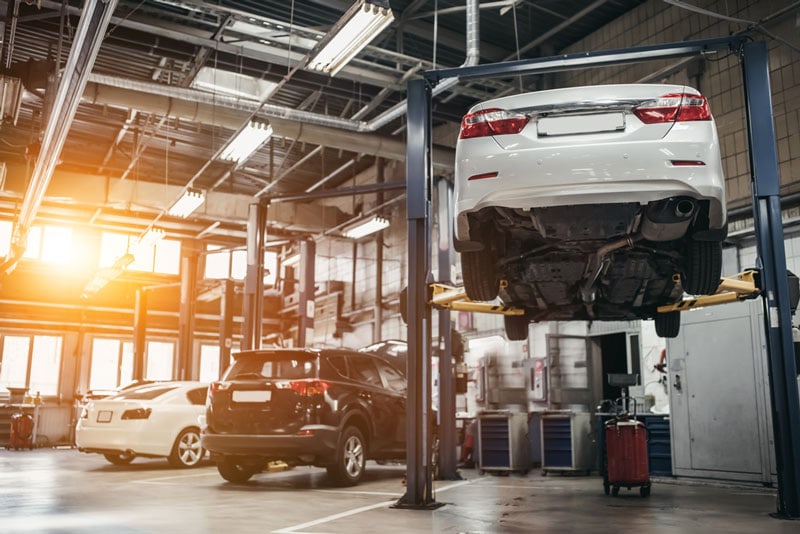Technology is changing the way we do business. With each passing year, newer innovations radically transform the world around us work. There are a plethora of technologies that are capable of influencing the way we do business. These include blockchain, Internet of things, AI, Machine Learning, and many more.
Machine learning is one of these technologies that have massive potential, according to tech experts. Machine learning is usually seen as a subset of Artificial Intelligence (AI). The world around us is being automated at a meteoric rate, and AI and Machine learning are crucial for automation.
The phrase Machine learning is self-explanatory. In layman’s terms, it means the ability of a machine to learn a process and perform it without external assistance. Machine learning algorithms use mathematical models based on sample data or ‘training data’. These mathematical models are then used to make predictions without being explicitly programmed to perform the task.
Machine learning has numerous applications and is widely used in various sectors, including Financial Markets, Advertising, Agriculture, Banking and many others. In this blog, we’ll be exploring the prospects of Machine Learning in the Automotive Sector. We’ll analyze how machine learning can influence the manufacturing process of automobiles and improve overall efficiency. Keep reading to know more.
Root Cause Analysis:
Root cause analysis means identifying the root causes of problems or faults so that they can be adequately addressed. Problems can arise in the lifecycle of a product that can tarnish the brand image and impact revenues. Hence, identifying problems at their roots and eliminating them is imperative for the sustainability of a business. This is particularly crucial when it comes to the manufacturing sector as identifying a root cause can be a cumbersome task. Massive amounts of data regarding testing, manufacturer parameters, and sensor measurements need to be analyzed.
Machine learning can be very beneficial in root cause analysis in the automobile manufacturing industry. Machine learning algorithms can analyze large datasets and detect anomalies in a matter of seconds, where traditional methods would take much more time. Machine learning, when combined with other AI technologies like deep learning, can help in identifying root causes even more efficiently.

Quality Control:
Quality control is a system of maintaining standards in manufactured products and reviewing them. Quality control is vital in automobile manufacturing as the slightest flaw in a part could result in malfunctioning of the vehicle. This malfunction could potentially lead to a life or death situation. It takes an extensive workforce and resources to conduct quality control manually.
This is where machine learning could prove to be a boon. There are many machine learning algorithms like anomaly detection and image recognition that can detect and eliminate faulty parts before they get into a manufacturing flow. Manufacturers can capture images of parts as they move along the assembly line. Then these images could be fed into a machine-learning algorithm that’ll identify any flaws. Early identification and elimination of faulty parts in far more convenient than having to replace them later imagine tearing apart a finished product only because of a flaw in a component.
Supply Chain Optimization:
Auto manufacturers need to be very efficient when it comes to logistics costs. Optimizing their supply chain is crucial for the success of any automobile manufacturing firm. Firms need to forecast the demand at different locations and maintain their inventory accordingly. Overstocking and understocking are very costly problems that the industry cannot afford to face.
Here also, machine learning comes to the rescue. Data scientists are using machine learning algorithms to predict demand accurately. They analyze the gap between current and projected inventory levels and formulate models of the optimum flow of inventory from the manufacturer to the distributor and then finally to showrooms.
Predictive Maintenance:
Predictive maintenance is the collection of techniques that are used to determine the condition of the manufacturing equipment. The idea is to predict damage before it occurs to save costs and time. The primary aim is to avoid unexpected failures of equipment and machinery, which can delay the manufacturing process.
Not only in manufacturing, but predictive maintenance can also help vehicle owners to predict when their car needs servicing. In manufacturing, predictive maintenance can improve efficiency and save costs, while for customers, it can boost brand image and loyalty.
So, it must not come as a shock to you that most manufacturing firms are making use of this technique. Machine learning is one of the most effective tools that allow you to perform predictive maintenance accurately and efficiently. Firms can now predict when their machines are likely to fail, and they can plan accordingly.
Enhancing user Experience:
Machine learning techniques can enhance the overall user experience while in the car. All the above factors that we have listed above will result in a better product. If your product is better, then customer satisfaction is bound to increase.
Machine learning can learn the traits of individual users and then create personalized user profiles. These profiles could then be used to provide a personalized experience and assistance to every user.
Final Thoughts:
Machine Learning is rapidly changing the world around us. More and more processes are automated with each passing day, and the technology is only getting better.
The automobile sector is one of the most competitive sectors in the world, with very high costs. Costs like inventory holding costs, stockout costs, and logistics costs can be very high if the process is not managed correctly. So to stay in the competition and remain a relevant player, firms need to make use of whatever tools they have at their disposal.
Machine learning is one of the few technologies that has the potential to revolutionize the manufacturing process. This is true not only for automotive manufacturing but for manufacturing in general.
Currently, there are a few auto manufacturers who use machine learning algorithms in their operations. As things are going, tech experts feel that it could take a couple of more years before widespread assimilation of machine learning in auto manufacturing takes place.













Leave a Reply